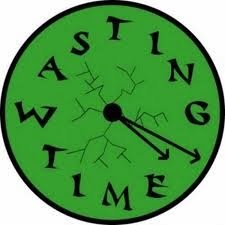strivingobserver98
If you can read this please remember me in your du
- Messages
- 6,832
- Reaction score
- 432
- Gender
- Male
- Religion
- Islam

Avoiding the Laghw (unnecessary and useless speech and actions)
The Arabic word “Laghw” used in the Quran means “vain, useless talk or pastime.” Anything that is not beneficial for one’s self, for others, or for the hereafter (dunya or Aakhirah) falls into the realm of Laghw. It has no place in a proper Muslim life.
Paradise will have no Laghw in it.
“They will hear no vain talk therein, nor any call to sin.” (Qur’an, 56:25)
The sincere believers avoid useless talk and actions even in the life of this world. Some meetings, pastimes, habits and hobbies are so utterly useless that wise people among non-Muslims too avoid them.
In order to check whether what we do comes under Laghw or not, we should ask ourselves two key questions:
1. Will this benefit me in this world and the hereafter?
2. Is there something else more beneficial that I can do?
Useless conversation to “kill boredom” is so common nowadays. Picking up the phone to talk without any specific purpose, meeting people all the time to have chit-chats over food, spending hours in front of the TV or in online chat-rooms are all Laghw. In addition, comedians who say anything to make people laugh, even fabricated statements, and drama and films that are fantastical and far-fetched and give us no beneficial knowledge- all fall under Laghw.
The worse part is, most of the Laghw talk and acts often lead to sins of various types like gheebah, lying, foul talk etc.
If one consistently and honestly guards one’s pastimes by rating them according to the above two questions, he or she in the long term can really make the most out of life.
Let us analyze our personal activities, meetings, pastimes and hobbies, and honestly ask ourselves whether each of them will really benefit us in this world and the Hereafter. Perhaps then, Insha Allah, we can take steps towards “honorably avoiding” the useless ones, replacing them with lofty righteous deeds that will benefit us, and others, both in this world and the hereafter.
Source
